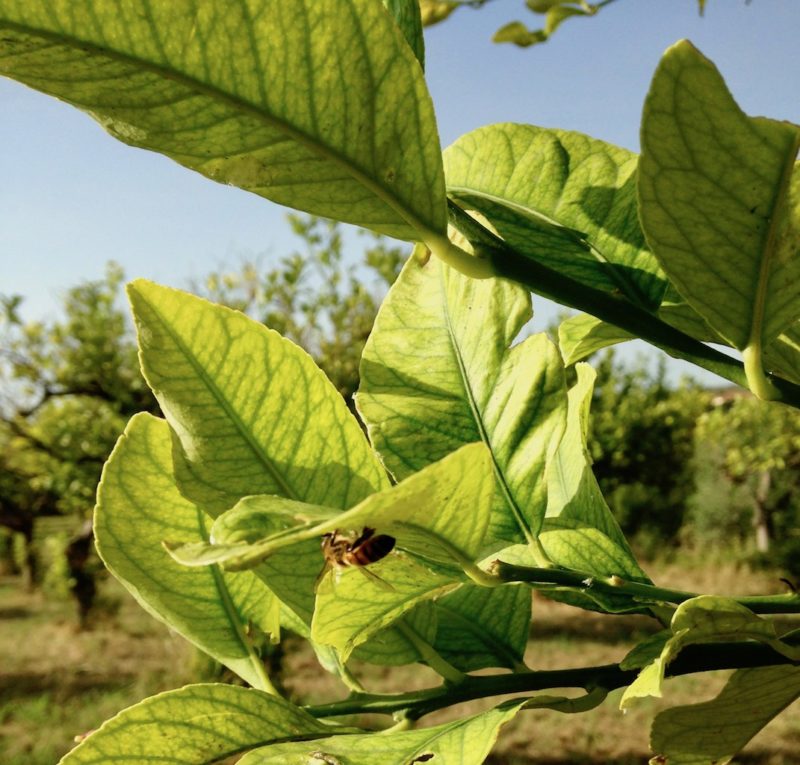Honeydew and Bees
Balance and Time
It’s always a question of time. Find the right time, invest enough time and search for a good time after a hard time. This is what we learned from bees and honeydew 🙂
What is “Honeydew”?
Honeydew is a sweet and sticky liquid excreted by certain insects, usually aphids. When these insects pierce the phloem of a plant leaf with their needle-like mouthparts, the sap — which is under pressure — shoots into the food canal of the insect, forcing the previously ingested sap out the other end. (Yep, you read that right.) Honeydew is fast-tracked bug poop.
Take the Good with the Bad
Healthy ecology means harmony, balance, and variety. Everything must be recycled in nature; one thing can be a resource for others.
THE BAD:
An overabundance of honeydew can turn to black mold on the leaves, causing an interference with photosynthesis. This can cause a reduction in the production of fruit, sparking fear and anxiety in many farmers. Therefore aphid sap can be perceived as a major problem for farms.
The reaction for fast solution by many short-sighted farmers is to stop the aphids in their tracks with pesticide. There is also the possibility of cleaning the leaves with a mixture of a high pH cleaner and water with forceful scrubbing…but how likely is this approach if a farmer with 50-400 trees and millions of leaves to clean? Highly unlikely.
THE GOOD:
When flowers with pollen are not readily available for bees, they turn to honeydew for sustenance. Bees adapt themselves to survive and gladly consume this sweet sap for daily meals.
The Bees Knees and Our Citrus Grove
Happy wife, happy life. Also true: happy bees, happy life. Active bees are essential to the life and future of an abundant organic farm (and our entire food system…).
Just as the roots of a plant move in search for nourishment in the soil, if bees are not getting the glucose nourishment they need to feed their hive they leave in search to find elsewhere. And as smart organic farmers know, keeping your bees satisfied is essential to your harvest.
We find honeydew under the leaves in our citrus fruit grove. We do not use pesticides and we do not clean off the sap. We leave the honeydew for our bees!
A Sweet Gift
So if bees truly are the best workers in nature, is it possible to get nothing in return after their meal of honeydew? No, of course not. They produce a different varietal of honey called, Melata or Mielata in Italian. Melata has a different taste and texture than traditional honey made from pollen.
Such as:
Flavor – Complex in dark brown nuances reminiscent of vanilla, molasses, maple, and wood. It also has earthy, herbal flavors.
Texture – Velvety and thick in texture, because the % solids are larger.
Summer in Sicily looks like a break time but someone’s gotta work…

